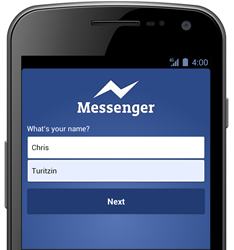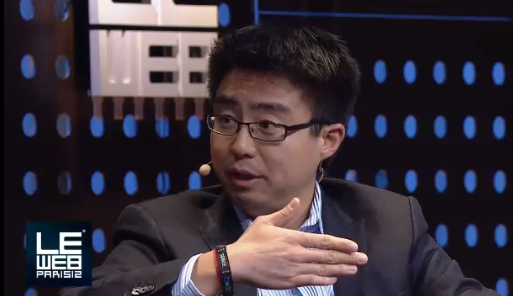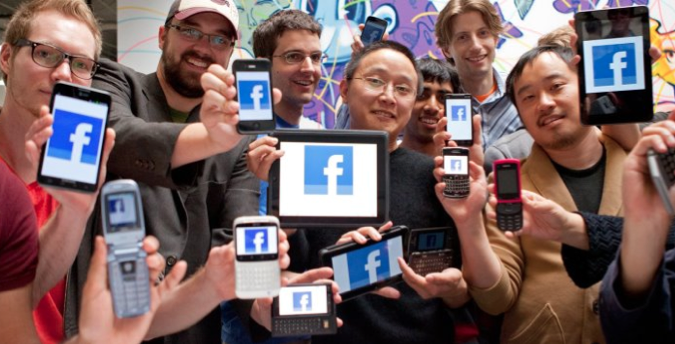The first world might use just a handful of handsets, but the key to Facebook’s growth is emerging markets fragmented across over 7,000 smart and dumb phones. To help it bug test for all these, Facebook keeps an office “library” of mobile devices, product manager Peter Deng revealed. So what’s the team testing now? A version of Messenger for feature phones that doesn’t require a Facebook account.
 Until today, all of Facebook’s products required an email address for sign up. But there are tons of people who don’t have smartphones or email addresses in emerging markets. These places like India and Brazil are Facebook’s growth targets where it has low penetration, but high signup rates and plenty of people left to serve. For example, India has a population of over 1 billion but Facebook has just 65 million users there.
Until today, all of Facebook’s products required an email address for sign up. But there are tons of people who don’t have smartphones or email addresses in emerging markets. These places like India and Brazil are Facebook’s growth targets where it has low penetration, but high signup rates and plenty of people left to serve. For example, India has a population of over 1 billion but Facebook has just 65 million users there.
Now it’s rolling out a version of Facebook Messenger that doesn’t require an email address or Facebook account to sign up. You only need to enter your full name and phone number to signup. This opens it up to a huge new market. Non-Facebook Messenger could let people see the value of Facebook and then convince them to acquire an email address if they don’t have one and then set up an account.

Currently, non-Facebook Messenger is only for Android, but that’s where the office library of mobile phones comes in. Today at LeWeb, Deng revealed that a version for feature phones is in development. To cram any approximation of the group chat, photo sharing, geolocation, and other capabilities of Messenger into a feature phone, it will have to do some serious testing. If it releases a buggy product, it could leave a sour taste in the mouths of people who might be trying Facebook for the first time.
Facebook engineers can take obscure mobile devices from the library and run their alpha builds on them to check for compatibility. Small developers often complain about mobile fragmentation and the myriad Android and feature phones in particular. Thanks to Facebook’s size, it doesn’t have to ship with its fingers crossed. It knows its app will work in the most remote corners of the planet.
